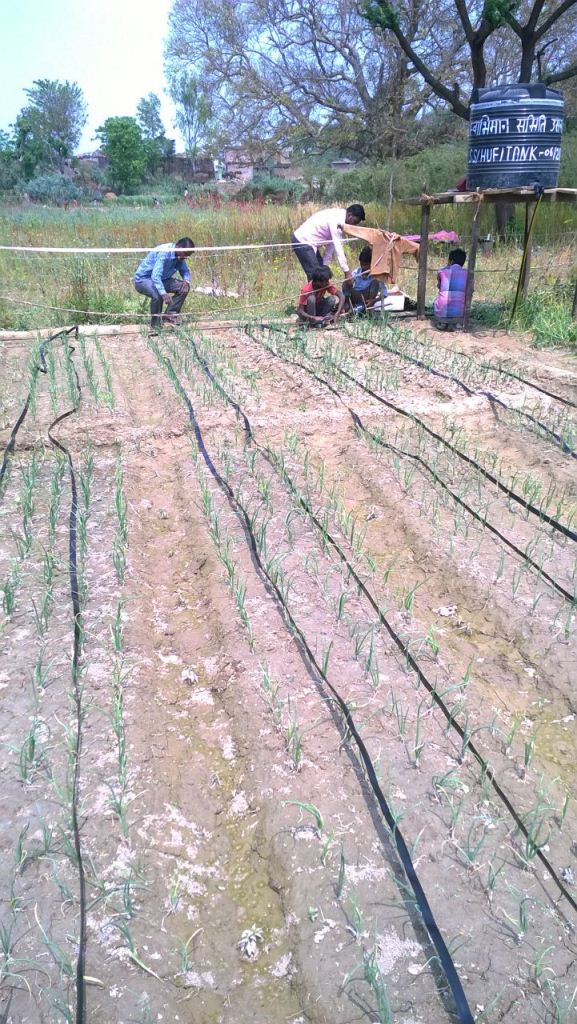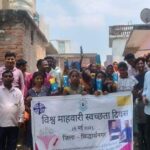Livelihood Empowerment Program – Siddharthnagar
The Livelihood Empowerment Program in Siddharthnagar district, supported by the Sir Dorabji Tata Trust (SDTT), Mumbai, aims to enhance the food security and sustainable livelihood of farmers through collectivization, capacity building, and technology transfer. The program focuses on empowering farmers and ensuring their active participation in agricultural development and livelihood initiatives to improve their overall well-being and dignity.
- Geographical Outreach:
- Number of Farmers’ Groups: 17
- Number of Members in Farmers’ Groups: 238
- Number of Villages under the FASAL Project: 2 (Ajgara & Hathiwartal)
- Number of Blocks under the FASAL Project: 1 (Uska Bazar)
- Total Area under Technology Transfer: 200 hectares
- Objectives of the FASAL Project:
The primary goal of the Farmers’ Action for Sustainable Agro-based Livelihood (FASAL) project is to:
- Empower farmers by enhancing their skills through collectivization and capacity building on various issues, including technical aspects of farming.
- Ensure that farmers can secure their food and achieve sustainable livelihoods without discrimination.
- Promote the ability of farmers to live with dignity in society by improving their socio-economic status through better farming practices and access to resources.
- Key Achievements:
The FASAL project has seen several significant milestones, which include:
- 126 Families Covered: A total of 126 families have been covered through various livelihood promotion programs, including capacity-building and agricultural development initiatives.
- SHG-Based GP Level Federations: Self-Help Group (SHG)-based federations at the Gram Panchayat (GP) level have been regularly taking initiatives to ensure their entitlements related to right to work, livelihood, and right to food are realized. These federations have become key players in advocating for the rights of farmers and ensuring their access to services and benefits.
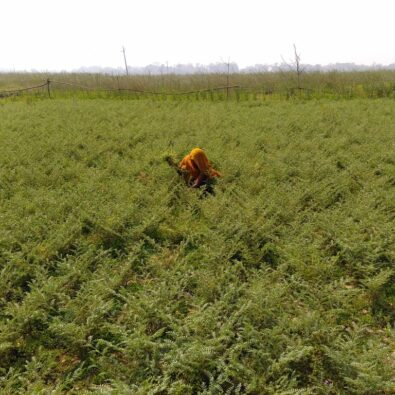
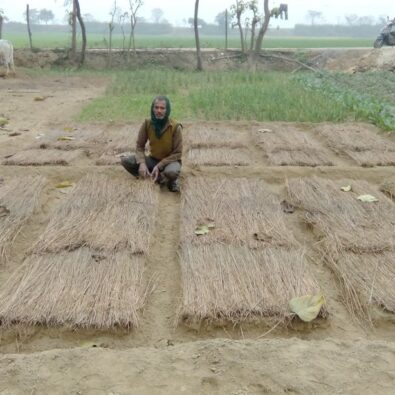
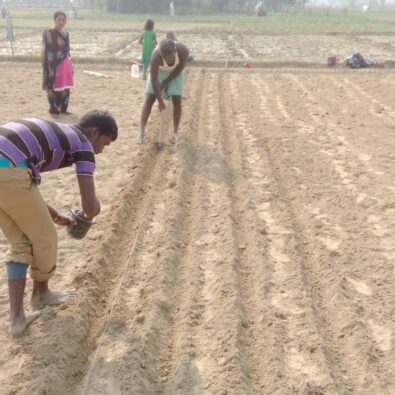
- Social Security Schemes: 35 individuals have been linked to various social security schemes, helping them gain access to health insurance, old-age pensions, and other welfare benefits.
- Youth Training and Support: 5 youths have been trained in different trades, and 4 of them have received financial assistance for establishing their own enterprises. This initiative is designed to provide employment opportunities to the youth and contribute to the local economy.
- Farm-Based Activities: 20 farmers have been engaged in various farm-based activities aimed at improving crop production. These activities have focused on improving farming techniques, enhancing crop yields, and promoting sustainable agriculture practices.
- Outcome of the Program:
The FASAL project has led to a significant change in the livelihoods of farmers by:
- Improving agricultural productivity through the adoption of new technologies and better farming practices.
- Ensuring food security for families through improved crop production and better access to markets.
- Empowering women through active participation in SHGs and federations, enabling them to realize their entitlements and demand access to government schemes.
- Providing economic opportunities to youth through skills training and enterprise development.
- Strengthening community networks that support collective action and advocacy for farmers’ rights.
- Conclusion:
The FASAL project in Siddharthnagar district has made remarkable strides in empowering farmers and improving their livelihoods. Through collectivization, capacity building, and the implementation of sustainable farming practices, the project has ensured that farmers can secure their food and income while improving their socio-economic status.
By linking farmers to social security schemes, providing youth training, and fostering collaboration at the community level, the program has contributed to creating sustainable livelihoods and economic opportunities.
Swabhiman Samiti continues to focus on improving the economic resilience of farmers and ensuring that they have access to the resources and support needed to thrive in the changing agricultural landscape.

